
Belief
Written by Leigh Martinuzzi
belief – a mental representation of an attitude positively oriented towards the likelihood of something being true.
Belief is the thought of something that is true or factually correct and can be interpreted to be the case with or without empirical evidence. We form various beliefs over the course of our lives and continue to do so on a day to day basis. Some beliefs are of little importance while others carry a significant weight upon our behaviours and overall well-being. Just as beliefs are formed I believe they can be changed. Therefore, if certain beliefs are representing obstacles as the way we truly desire to live our life, we can work to change them.
Accepting something as truth with confidence and without introspection or necessary evidence seems strange yet we act on autopilot most of the time based on what we believe. Sounds a little risky to me. However, I get it. If I look out the window in the morning as I awake and see heavy clouds I would instantly search my memory and likely form the belief that it’s going to rain. I may also believe that the day will be cooler. I proceed to get dressed in something a little warmer, pour a nice cup of hot tea and make sure the umbrella is in the car. A simple example of how our beliefs guide our behaviours.
There is no need to contemplate our beliefs as most are relatively inconsequential as to the decisions we make. Actually, it could be agreed that beliefs are a good way to operate more efficiently as we are able to make quicker decisions. This could be a good thing assuming the decisions we make are worthy. There are also beliefs that matter little. As we are exposed to information that we use to quickly make a confident decision about something which is not going to have any significant impact on our lives.
Cucumbers don’t have seeds. My cat can play the piano. Yesterday it snowed. Mice actually don’t like eating cheese. None of these really matter to the state of my life. Our curiosity may have us asking further questions or then again, we may not care. Universal knowledge may have us pretty quickly disregard certain statements as true or false. For example, we know that the statement “cucumbers don’t have seeds” if false, unless, of course, we’ve never seen or eaten one. If I said that the cucumbers, I grow don’t have seeds you’d have less confident in whether you believe me or not. Most likely it’d still be relatively unimportant to the happenings of your life. And if you were an experienced horticulturalist, you’d probably be able to form a pretty good argument for or against this statement.
Then there are beliefs that do have a critical role in how we operate. These beliefs we may not regularly consider nor need to consider. Anything in moderation is good for us. This statement will affect how you behave. It may prevent you from reaching certain goals or act as an obstacle to happiness. Then again it may not. One may also find themselves being challenged at times, and this could pose an issue if this were a strongly held belief.
Is sugar in moderation good for you? Is taking drugs in moderation good for you? What about murder?
From this simple example, we can see how a belief could affect the decisions and resulting behaviours that we may make. If anything in moderation is good, we may just smoke a cigarette when offered one. We may not. If we don’t, how then is the belief challenged? How does it affect our future decisions? If a belief is challenged by new evidence it will alter the original belief, slightly or largely. One may now say that most things in moderation are good for us but not all.
The formation of belief is a tricky one. There are many philosophical and psychological theories on the nature of belief. The one I lean towards is that belief is conditioned and further formed based on evidence and reasoning. How we are raised, the environment that we grew up in, and the culture and society we are a part of all directly influence our beliefs. As the elements are so diverse in themselves I can only raise a generalist opinion on the formation of belief. The individual landscape of our beliefs is expansive.
I grew up with parents who were vegan, they ate plants and chose not to eat animal products. They were not too knowledgeable on the science and biology behind how diet affects health. They chose this lifestyle because they felt strongly about killing animals for food and the inefficiencies of the meat and dairy industries. As their child, I adopted very similar beliefs. As a result, I ate as they ate, even beyond the grips of dependency. This is a fictional example of how one may be conditioned with certain beliefs.
Religious beliefs, societal beliefs, cultural beliefs, conditioned beliefs. Through life experience, these will result in the formation of core beliefs those which we actively think and act upon. Those that directly create our identity and form our world view and perspectives. Unlike the cucumber example above, these beliefs are deeply held and take more work to change. However, beliefs do change, as our priorities change, as we have more experiences and are exposed to more information. Beliefs can and will change.
What we know or at least believe to know and what we have stored in memory from past experience will continue to influence our beliefs, both core beliefs and new-found beliefs. They will continue to guide our behaviours and shape our destiny.
If there are changes you desire to make or if you wish to improve the quality of decisions you make in life, then ask why. Why do I act the way that I do? You’ll find a belief is a cause. Then we must ask, why do I believe this? What is the evidence, facts or experiences that have contributed to this?
Be kind. Many beliefs are formed over many years and for that reason may take many years to reform or change. I’ve written on this in the past, the positive ways to improve one’s beliefs are through the collection of new information and experience. Ask questions. Be curious. Find out why. And be open to differing beliefs and opinions.
Then there are beliefs you do not want to challenge. That is fine. I would suggest that some beliefs, however, need to be scrutinised from time to time, sometimes often. What I once believed I no longer do! What was a belief yesterday I found changed today! Beliefs are the backbones to action and action drives progression. If we want to evolve individually or as a whole, beliefs must move. If they didn’t the advances and quality of life that most of us live today wouldn’t be as it is. Beliefs that are not questioned can result in complacency and that is a ticket to nowhere.
If you have goals in life, and I assume you do, know this – your beliefs are going to be tested. In action and experience, you will confront new evidence which will either enhance your beliefs or disprove them. For whatever the case, it needn’t matter for that is how we build character – as beliefs change our character grows. This is how we discover more meaning in life. Belief is what will allow us to live with a greater sense of peace regardless of the joy or unease that we may be experiencing in any given moment. I say enjoy the ride, be aware and don’t be afraid to challenge your beliefs or someone else’s. It will create a grander experience along your journey.
Further Reading and Resources
TED Talks: Ideas worth spreading
Elite Daily: The Voice of Generation Y
Four Hour Work Week: How to escape the 9-5, live anywhere and join the new rich.
The Minimalists: How to pursue a minimalist lifestyle and be happier.
Mind Hacks: Tips and Tricks for Using Your Brain
Rich Roll: Plantpowered Wellness Advocate
The Art of Charm: Build confidence, feel comfortable and networking differently.
The Art of Manliness: Encouraging men to be better husbands, fathers, brothers, citizens.
Tiny Buddha: Simple wisdom for complex lives.
Mind Body Green: Lifestyle media brand dedicated to inspiring you to live your best life.
Zen Habits: Find simplicity and mindfulness in life.
Creative NonFiction: “true stories well told.”
Barking Up the Wrong Tree: science-based answers and expert insight on how to be awesome at life.
The Positivity Blog: Practical articles on happiness, self-esteem, productivity and social skills.
FIND YOUR HIDDEN WHY with THE HIDDEN WHY (THW)
BUILD YOUR LIFE AROUND YOUR PASSION AND LIVE WITH PURPOSE
Sign up for free below and receive cool stuff from me each week + Plus a free copy of “The Four Pillars of Success”
In my weekly emails you will receive ideas, thoughts, learning’s and inspiration on:
- How to design a life that you want and live by your terms
- How to live a life with passion & purpose
- Methods, strategies, & techniques on life hacks
- Messages on how to better live your life
- We will also keep you up to date with fantastic interviews from THW podcast





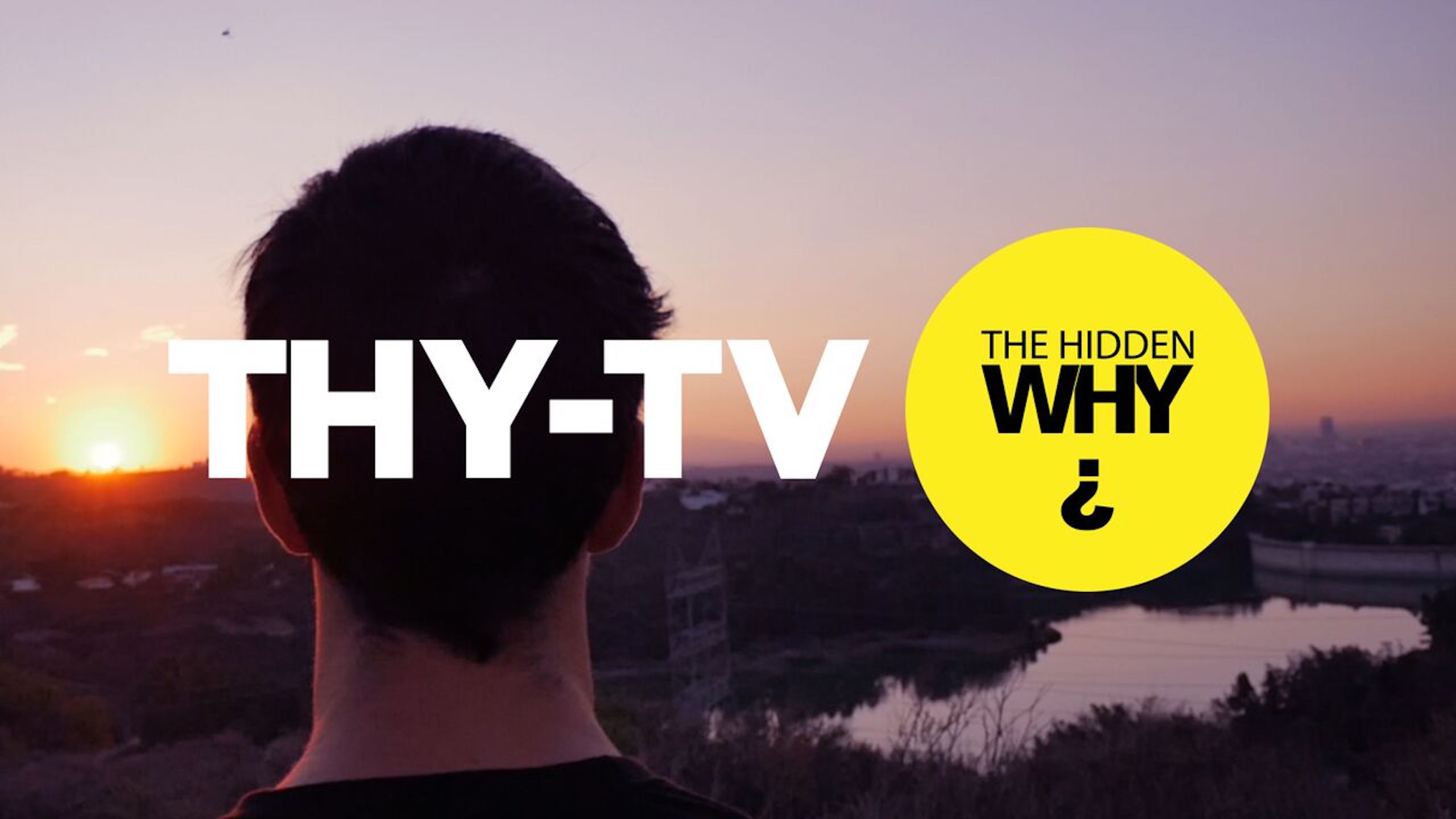
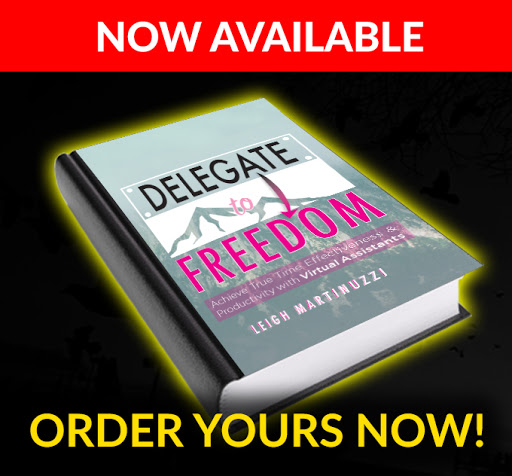
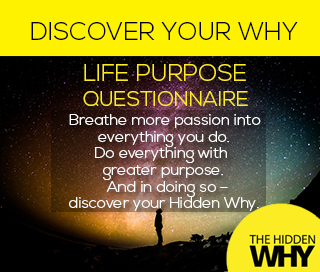



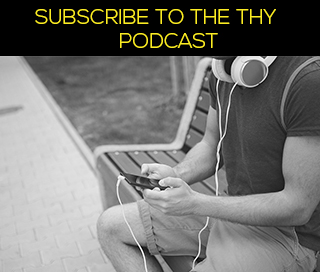
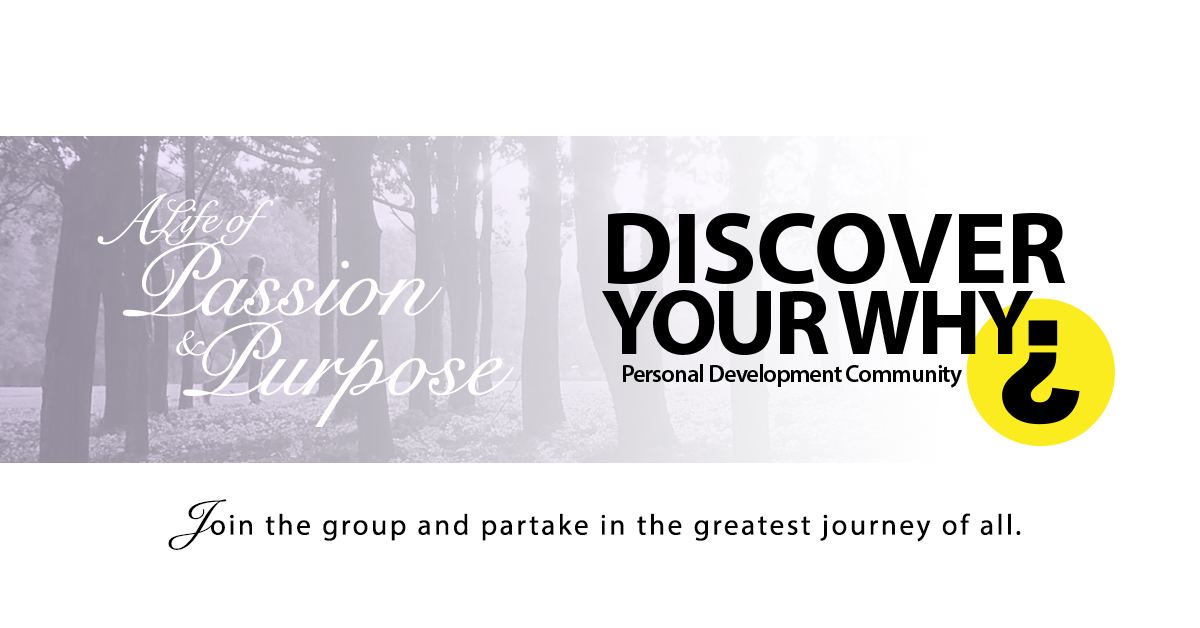
Leave a Reply